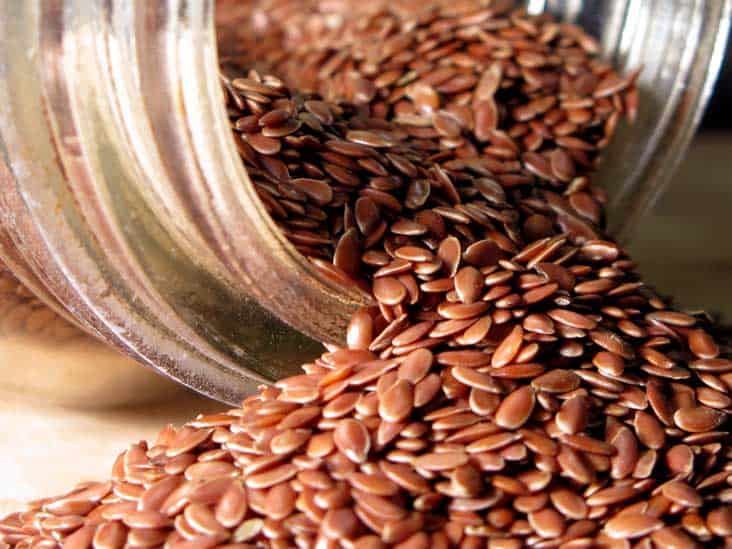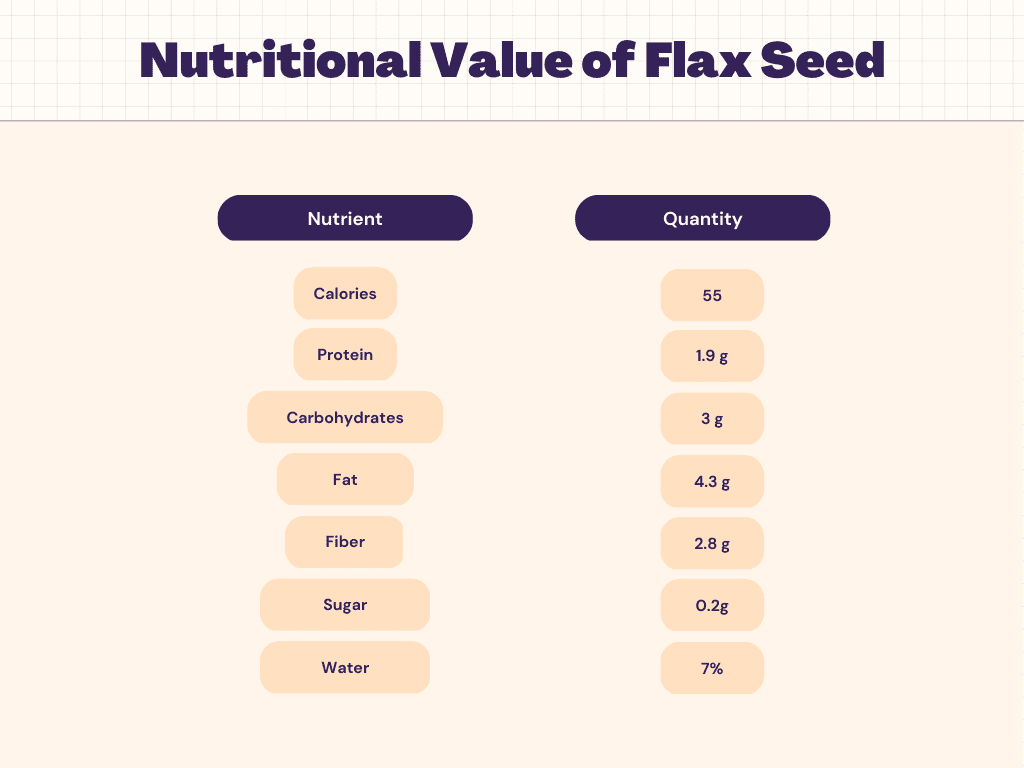Flax seeds are tiny oil seeds that are rich in fiber, omega-3 fatty acids, and other plant-based substances. They could aid in better digestion and lower the risk of cancer, type 2 diabetes, and heart disease.
Nutritional Value of Flax seed
Nutritional Facts of Flax seed
Carbs
Of the 29% of carbohydrates found in flax seeds, 95% are fiber. This makes them a low-carb food since they have a low net digestible carb content, which is the number of total carbs minus the amount of fiber.
Fat
The amount of fat in one tablespoon (10 grams) of flax seeds is 42% or 4.3 grams. This fat is made up of 73% polyunsaturated fatty acids, including alpha-linolenic acid, an omega-3 fatty acid, and omega-6 fatty acids (ALA)
27% of the fats are monounsaturated and saturated.
Protein
Flax seeds have 18% of protein. Their amino acid composition is similar to that of soybeans. Although having all the necessary amino acids, they are deficient in lysine. Hence, they are regarded as incomplete proteins.
Vitamins & Minerals in Flax seeds
A good source of various vitamins and minerals necessary for optimum health is flax seeds. They include copper, molybdenum, magnesium, phosphorus, and thiamine (vitamin B1).
Health Benefits Of Flax seeds
- Helps in losing weight – The tiny brown seeds are packed with mucilage, a type of fiber that can stifle cravings and hunger and keep you from engaging in harmful snacking. Check our Weight Loss Plans.
- Manages Diabetes – Preliminary studies suggest that consuming lignans, a substance present in flaxseeds, on a daily basis may lower blood sugar levels. In the study, it was found that when persons with Type 2 diabetes took supplements containing 10–20 grams of flaxseed powder daily for one to two months, their fasting blood sugar levels decreased by 19.7%. Check our Diabetes Plans.
- Prevents Cancer – According to some recent studies, flaxseed components may potentially offer protection against colon, prostate, and breast cancer.
- Improves skin health – Brown seeds include lignans as well as a number of antioxidants that can help prevent facial wrinkles.
- Lowers Blood Pressure – These seeds are also a good source of potassium, a nutrient that can assist to reduce blood pressure by reducing tension in blood vessel walls.
The Bottom Line
Antioxidants are abundant in flaxseed and its derivatives, particularly lignans. Although there is not yet enough data to support their potential health advantages, they might have some. To make sure flaxseed is safe for them to take, anyone thinking about utilizing it should first speak to a doctor. Online retailers provide a variety of flaxseed items for sale.
FAQs
How many Flax seeds can I eat in a day?
The use of this seed may be particularly beneficial for people with high blood pressure. In fact, a short 12-week trial revealed that persons with high blood pressure could lower it by ingesting 4 tablespoons (30 grams) of flaxseed daily.
Should I eat Flax seeds before or after exercise?
The amount of fiber you consume two hours before and two hours after working out should absolutely be limited. Avoid fiber supplements, bran, and high-fiber bread in addition to flaxseeds and choose a protein and carbohydrate combination instead shortly before your workout.
What are the benefits of Flax seeds?
- Prevents constipation
- Improves blood sugar
- Reduces hot flashes
- Eases the symptoms of arthritis
- Reduces the risk of cancer
What is the best time to eat Flax seeds?
Flax seeds are suitable for consumption both in the morning and at night. Some of its advantages, though, might work better at certain times. For instance, because they are rich in protein and fiber, eating them in the morning is a good idea. Your metabolism will also be significantly increased in this way.
 Livofy (formerly Keto India) Seen On Shark Tank!
Livofy (formerly Keto India) Seen On Shark Tank! 









